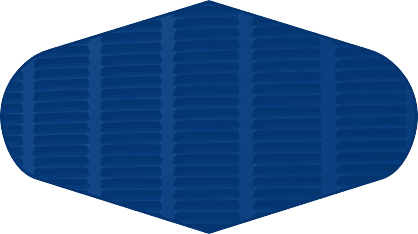Every industry has measurements in place that tell people certain things. In the HVAC industry, one of them is the SEER rating. While this is commonly available and should be easy to find, you might not know what it means unless you’re an industry technician. However, understanding this information is important for any home you own or business you manage. You should know what it is, what the benefits of it are, and what a good rating for you might be.
Seasonal Energy Efficiency Ratio
SEER is an acronym meaning “seasonal energy efficiency ratio.” It’s a ratio measuring an air conditioner’s cooling output over a normal cooling season divided by the watt-hours of energy it requires to operate. You might also hear people refer to it as the “seasonal energy efficiency rating.”
A normal cooling season is simulated in a range of outdoor temperatures. This range usually goes from 60 to 100 degrees Fahrenheit. The target is for an AC system to maintain a consistent indoor temperature while outdoor temperatures vary through that range.
One thing you should keep in mind is that a SEER ratio is considered to be a maximum efficiency rating. The miles per gallon you get out of your vehicle is the same. Your best MPG will be during highway travel, but it will drop during city traffic. If you have a SEER ratio of 18, that’s the best you will ever get, but it might be lower based on current conditions at various times.
What Are the Benefits of a SEER Rating?
A higher SEER rating means that your home or business will have better energy efficiency in some circumstances. Air conditioners have a minimum SEER of 13, but you can find them as high as 21. Your actual system efficiency will be affected by a number of variables. The size of your home is one of them. Your current ductwork is another one. Even if you have a high SEER rating, you need to apply any energy-saving techniques you have available to you during the summer.
The United States Department of Energy is the entity that enforces SEER minimum requirements, but they don’t have a national standard. They actually do it by region. The Southeast and Southwest have a minimum of 14, but the North only has 13. Many older air conditioners are only rated at eight or nine, so just moving up to the regional minimum where you are means a serious increase in efficiency, which can mean lower utility bills and a decreased likelihood of potential problems.
If you live in a particularly hot region, and especially if you live somewhere humid, then a higher SEER number can mean you’re going to be a lot more comfortable indoors when it’s scorching outside. If it gets really hot outside, then an AC unit will only do so much to keep your home cool and dry, but a higher SEER number will mean a greater cooling capacity and a significant improvement over older systems.
That increase in comfort is likely due to different components. Older AC units with lower SEER numbers frequently only run at one speed or only have a single-stage operation. However, newer units with higher SEER numbers usually have a pair of newer components that can help you stay more comfortable. One is a variable-speed blower, and the other is a variable-speed or two-stage compressor.
What’s a Good Rating for Me?
There’s not one SEER number that is the right magical answer for everyone. Having said that, any SEER rating of 13 or up is really good. It honestly depends on what you’re moving up from. For instance, if your current system has a SEER rating of eight, then moving up to 16 will dramatically lower your utility costs, but you’ll notice a real difference moving up even to the minimum of 13.
Moving up to a higher SEER system might take some financial investment, but there are often manufacturer’s rebates and tax credits available that help you bring down the costs. You’ll also be investing in the peace of mind of knowing you’re not going to be using as many fossil fuels, so your family will be reducing greenhouse gas emissions associated with your energy use.
If you’re not sure what the SEER rating of your system is or you want to possibly upgrade it, turn to our professionals at Jco Heating A/C Electrical. We handle cooling and heating equipment maintenance, repairs, and upgrades, and we also offer a full line of electrical services. Contact us today to schedule service for the HVAC system of your home or business anywhere in the vicinity of Springfield, OR.

 WE SERVICE ALL MAKES & MODELS
WE SERVICE ALL MAKES & MODELS